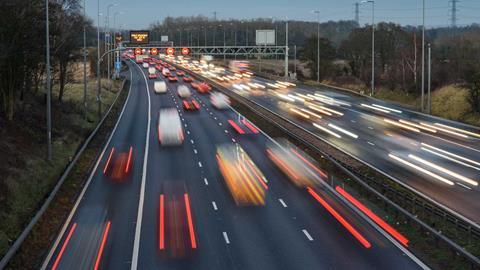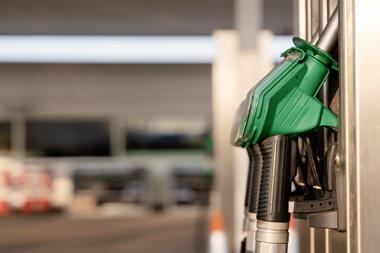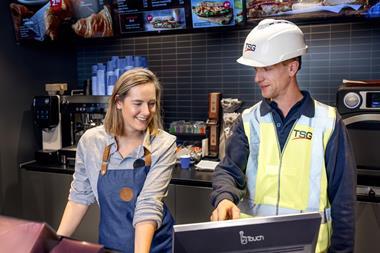With the Government Low Carbon Fuel Strategy finally expected in 2024, Fuels Industry UK outlines what the sector needs to deliver renewables at scale

When the government announces its response to its Low Carbon Fuels Strategy consultation later this year, it must grasp an historic opportunity to make the UK a world leader in low-carbon fuels.
To achieve this, government must allow all kinds of low-carbon fuels to compete to achieve the most efficient path to net zero, rather than put all its eggs in one basket with electric vehicles (EVs). EVs won’t be able to meet all the UK’s transport needs - for example, Heavy Goods Vehicles are not suited to electric power because of their weight, which means that there needs to be support for other technologies which can fill such gaps. We strongly believe that in future, transport – whether it’s our cars, lorries, ships or planes - is likely to need a mix of electric vehicles and ones powered by hydrogen or renewable liquid fuels depending on the type of use, distances travelled and pace of developments in design.
That’s why Fuels Industry UK is calling on Government to allow all types of zero-emission cars and vans in the future rather than focus narrowly on EVs. A technology-neutral policy would allow emissions from cars and vans to be correctly assessed over their full product lifecycle - from production, to use and recycling. It would also mean that consumer choice, rather than Government policy, would drive the multiple decarbonisation technologies needed for net zero.
In January, the Government’s Zero Emissions Vehicle Mandate for cars came into force, which will require 80% of all cars to be EVs by 2030. Yet sales of EVs as a percentage of all car sales in the UK flatlined in 2023, which gives an indication of the difficulties ahead for delivery of government’s existing policy.
All vehicles have emissions across their life cycle, despite some – such as battery EVs – being sold as ‘zero emission.’ It is essential to consider full life-cycle emissions when designing transport decarbonisation policy
Life-cycle analyses for internal combustion engines, as well as EVs, hybrids and hydrogen vehicles, shows that hybrids, battery electric vehicles and also conventional combustion engines using lower carbon fuels can reduce life cycle emissions by at least half against a standard combustion vehicle using conventional fuels.
All vehicles have emissions across their life cycle, despite some – such as battery EVs – being sold as ‘zero emission.’ It is essential to consider full life cycle emissions when designing transport decarbonisation policy.
To help accelerate decarbonisation, we must also optimise existing policies. Fuels Industry UK wants the Government’s Renewable Transport Fuels Obligation (RTFO), which currently aims to reduce carbon dioxide (CO2) by requiring a certain volume of renewable fuels to be blended into fossil fuels, to instead contain targets for directly reducing emissions from the fuels themselves. This change would encourage production of the best renewable fuels needed for net zero. Government must also encourage the development of all hydrogen supply chains to meet the rising demand for this energy source. This means that as well as supporting green hydrogen, which is created using electrolysis, it should support blue hydrogen, which captures the CO2 produced as well as other technologies that may emerge.
Since the Strategy was first announced, we’ve seen the UK’s Carbon Border Adjustment Mechanism (CBAM) proposed by government to ensure importers face equivalent costs for carbon emissions as UK manufacturers. However, the UK’s fuel makers are not included in the first iteration meaning that investment in refineries vital to achieve the UK’s net zero targets is likely to go to countries with weaker climate regulations, leading to more imports of products with a higher carbon footprint. UK refineries could close with thousands of jobs lost and an increase in overall emissions. The CBAM is welcome, but government must include the refining sector in its further consultation on the design of the CBAM in 2024.
To attract investment to the UK, the UK’s fuels sector also needs a package of financial support for low carbon fuel projects that matches those offered to projects in competitor countries as well as a stable policy and fiscal environment that gives investors’ confidence.
With a combined oil processing capacity of 58 million tonnes/annum (Mt/a) in 2022, the UK’s six refineries have the scale needed to help produce the low carbon fuels the UK industry. And the further good news is that existing UK fuel manufacturing and delivery infrastructure, including more than 8000 forecourts, can be transformed for the low carbon fuels needed for net zero.
Our member companies are involved in most of the UK’s industrial decarbonisation clusters and are uniquely positioned to make the UK a world leader in low carbon fuels. For example, the Climate Change Committee says that CCUS is vital to the UK achieving net zero, and Government has committed to capturing a vast 10 million tonnes of carbon dioxide equivalent a year by 2030. We in the fuels sector, which includes the UK’s fuel refining, storage, transport and forecourts, bring knowledge of standards for the design, construction and operation of CCUS facilities. The technologies needed are similar to existing processes on refinery sites and our sector also has the necessary understanding of UK geology. So, with the right policies in place the fuels sector can help achieve the nation’s net zero ambitions and make it a world leader in low carbon technology with a thriving industrial sector still in place.
































